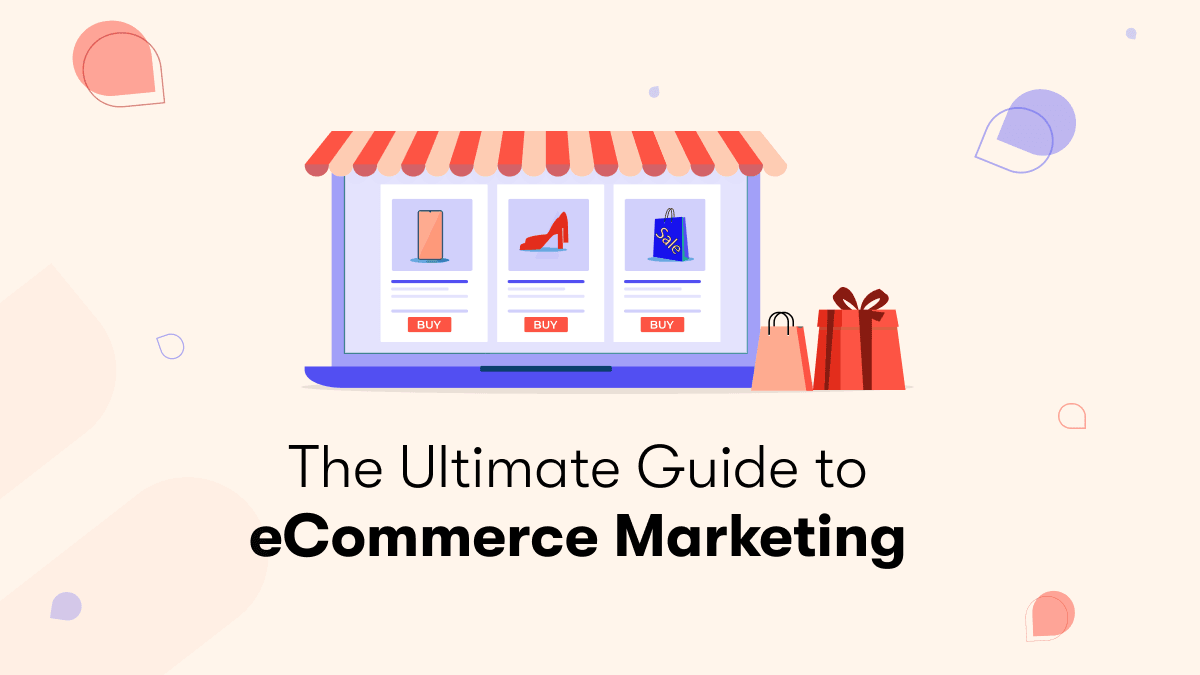
The Ultimate Guide to eCommerce Marketing [2023]
Here's everything you need to know about eCommerce Marketing including Email Marketing, Influencers, UGC, Chatbots, SMS, PR, Affiliates, Online Marketplaces.
DOWNLOAD TEMPLATEGlobal sales of eCommerce products went through the roof over the last 2 years. Sales are projected to double from pre-pandemic levels, hitting $7 billion globally by 2025. Everyone wants to capitalize on the momentum and grow their eCommerce business. The challenge is that there is so much information out there that it’s easy to get lost in all the fluff.
Brands are having a harder time with catching the attention of potential customers in their customer journey, focusing theiaffilir eCommerce marketing efforts on the right target customer and delighting them in the post-purchase portion of the buyer experience.
That’s why we wrote this guide.
If your eCommerce brand is struggling with optimizing your digital marketing, bringing sales, and improving your customer retention then this guide is for you. This is our most comprehensive guide on everything that has to do with eCommerce marketing strategy.
We cover specific eCommerce marketing tactics, the right channels, marketing tips, and tools to help you crush your ROI goals.
Key takeaways
In this guide you will learn:
- How to create a flawless eCommerce marketing plan
- The top eCommerce marketing channels that brands use
- Which channels to pick for your business
Let’s dive in.
[Add Banner Here]
What is eCommerce marketing?
Ecommerce marketing is the use of promotional tactics to drive traffic to your online store, converting users into paying customers and retaining those relationships post-purchase.
An effective eCommerce marketing plan is made up of marketing tactics both on and off your website. It involves identifying your eCommerce business model, picking your marketing channels, and audience personas, developing your value proposition, and other areas of the digital marketing mix.
But wait a minute, what is eCommerce?
Ecommerce is the activity of buying and selling products or services over the internet. It often refers to eCommerce brands that sell consumer packaged goods but it can refer to any business in any industry.
The advantage is that these brands get better ROI, it’s easier to target audiences, and offer a personalized omnichannel experience and better fulfillment.
The challenges are that there’s a lot more competition between brands, online marketplaces, and large established retailers. But if you’re a brand that has a quality product and a compelling story then there’s a ton of opportunity.
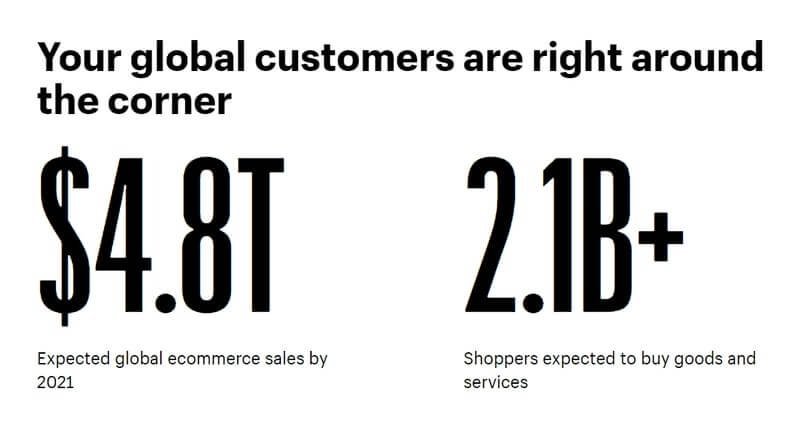
The eCommerce marketing funnel
Ecommerce brands have a very similar marketing funnel to other brands. The first three stages are there - the awareness, interest, and purchase stage. The only different is the addition of the last stage - the repeat or retention stage.
Awareness stage
The awareness stage is when potential buyers just hear about you. They’re not familiar with your brand so your task is to educate them and build trust.
Interest stage
The interest stage is where users have recognized your solution to their needs. The goal is to get them to join your email list and start the relationship.
Purchase stage
At this point, users understand how your product or service solves their problem and they just need that nudge to go through the checkout process. Your task is to remove any friction and make it easy for them to check out.
Repeat stage
The bread of butter of eCommerce brands is improving retention and increasing that customer lifetime value. Your task is to keep them happy by offering exclusive rewards, loyalty points, and providing a superior service.
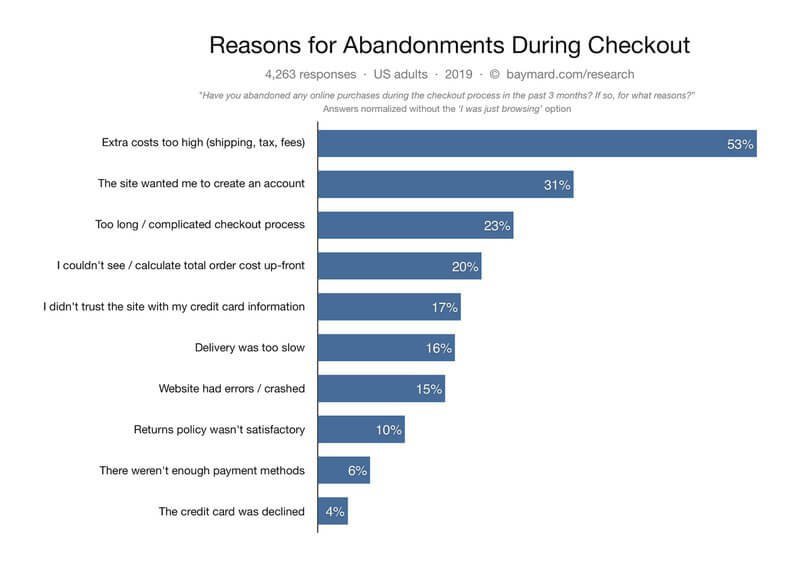
What are the 4 types of eCommerce business models?
There are four main types of eCommerce business models - and your marketing strategies should depend on the specific model you choose.
Let’s talk about each one.
- Business to Consumer (B2C): In the business-to-consumer (B2C) model, the company offers its products and services directly to end-users. Online retailers and D2C brands use this model.
- Business to Business (B2B): Organizations that sell their products or services to other business use the B2B model. Examples include companies like Grainger and Alibaba.
- Consumer to Consumer (C2C): In a C2C model, consumers sell their products to other consumers. It could be new goods or used goods. Two famous examples of C2C brands are eBay and Craigslist.
- Consumer to Business (C2B): This is where a freelancer offers a service to a business. The most famous example are freelance marketplaces like Upwork, Fiverr, and Mayple.
Now that you know about the four different eCommerce business models, let’s talk about the types of eCommerce marketing channels you should use to grow your business.
Types of eCommerce marketing
Choosing the right inbound marketing channels is one of the most important components of eCommerce marketing. You might have a lot of ideas about which channels you want to invest your energy and budget in, but again, this should be based on your competitor research and uniquely customized to your target audience.
Text message (SMS) marketing
Text messaging is another great way to engage with your customer base. Studies show that this is one of the most engaging of all marketing channels. In fact, 58.7% of text messages get answered within 5 minutes and 50% get answered within the first three.
Here are some of the top SMS strategies you should use to increase customer engagement and bring in more sales:
- Send shipping and delivery notifications via text message. Automate all of your transactional notifications to be sent that way.
- Send referral and loyalty program rewards to get more referrals and return customers to your online store.
- Send promotions and shopping cart messages with a discount code.
Influencer marketing
Influencer marketing is incredibly powerful for eCommerce brands. Studies show that 92% of consumers believe suggestions from their friends and family more than advertising. 49% of consumers say they use influencer recommendations to make a purchase decision.
Business owners should display influencer content on their website, product pages, use in brand awareness campaigns, retargeting sequences, landing pages, and on their marketplace product listings.
To find the best influencers to work with you need to look for ones that have an audience that matches your target audience. You can do it manually or by using a tool like Klear or Heepsy.
Conversion rate optimization
Conversion rate optimization (or CRO) is a must for every business and it's especially powerful in the world of eCommerce marketing. Every brand should be constantly optimizing its site to improve the user experience, improve conversions, and increase the bottom line.
CRO involves optimizing your checkout process, running A/B tests, displaying exit-intent popups and creative upsell and cross-sell offers, collecting user data to improve the overall shopping experience.
Conversion optimization efforts are essential because they help improve the ROI from all of your traffic sources and channels. For example, let’s say you pay for Facebook traffic. So optimizing the checkout will help improve the conversion of your Facebook leads.
Email marketing
Email is by far the most profitable marketing channel for any eCommerce brand. And like CRO, it helps increase the conversion rate of your other marketing channels (like Facebook ads, Google ads, and organic search traffic).
The return on investment from a solid email marketing strategy is at around $38 in sales for every $1 spent. And the great thing about email marketing is how flexible it is. You can personalize your emails, target the right customer segment, and send the optimal messaging to each recipient at the exact time that they are more likely to make a purchase.
With all the algorithm changes on social media platforms and search engines, the email list remains the only place where the business can store and really own their customer data.
Every brand should use an email marketing service that integrates well with their eCommerce platform and provides basic email automation to be able to target individual customer segments with personalized emails.
Here are the email campaigns that brands should send:
- Abandoned cart emails - targeting users that have added something to their cart and then left
- Promotional emails (holidays, sales)
- Behavioral segmentation based on user behavior on the site
- Product upsells and cross-sells
- Referral marketing and customer loyalty campaigns
- Welcome flow -
- Shipping/delivery notifications
- Email newsletter campaigns
Some of the elements brands should test in their emails include:
- Customer testimonials, success stories, and product reviews
- User-generated content (UGC)
- Popular social media posts
- Individual products and product categories
- Influencer images and videos
- PR testimonials or reviews
Need help running email campaigns for your brand? Check out our list of hand-picked, vetted ecommerce email marketing agencies.
Paid advertising
Paid advertising is the number one way to get more sales to your eCommerce store, and there are many ways to advertise. Most marketers still spend a majority of their advertising budgets on Facebook because they have the best ROI. Data shows that an average Facebook user clicks on 12 ads per month and Facebook has by far the largest audience at 2.14 billion people.
Traditionally, many successful online shops were built through Facebook ads. That has expanded to many other types of paid advertising campaigns such as Google Shopping, Amazon search ads, targeted product ads on Instagram/TikTok/Youtube, and native advertising.
Content marketing
Digital content is key to any inbound marketing strategy. Content marketing is all about serving each website visitor with relevant content to entice them to convert on your site.
Content can be used for customers in the awareness stage (top of the funnel) or for potential buyers that are shopping and comparing products (middle of the funnel). It's also an effective way to engage with your current loyal customers and bring them back to your site to make another purchase.
Best forms of content to try:
- An eCommerce gift guides
- A long-form blog post
- Customer testimonials
- Video content
- Company news
Focus on writing long-form guides that educate the consumer and genuinely try to solve their problem, provide answers, and tell stories. Here's an example of a super-comprehensive beard-growing guide from Beardbrand (a brand that received over 400k organic visitors per month):
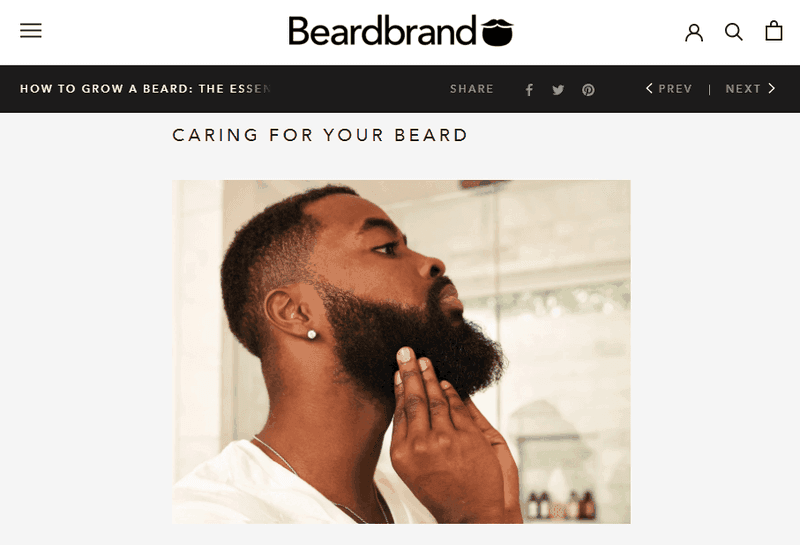
We put most of our emphasis on content marketing and only spend 10% of our marketing budget on ads. - Eric Bandholz, the CEO & Founder of BeardBrand.
Another really huge element of eCommerce content marketing is the web content on your product and category pages. Well-known online retailers, like Casper, don't just try to describe their products really well. They use quirky humor and excellent product copy to tell a story and lead the visitor through the sales funnel.
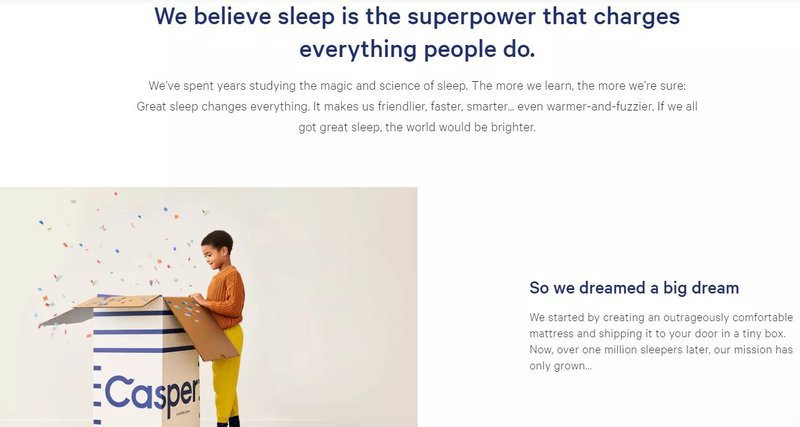
To learn more read our Guide to the top Content Marketing Strategies.
Search engine optimization
Search engine optimization (SEO) is an incredibly effective marketing tactic because over 40% of product searches begin on search engines. So if you want to get that large chunk of organic traffic, then you need to optimize your eCommerce SEO (which is often managed by eCommerce SEO agencies).
Use On-page SEO to optimize the content of your pages. That includes adding your target keywords or search terms into the URL, title, headers, and meta descriptions. Acquire more backlinks from reputable sites in your industry to improve your keyword rankings.
Also, make sure that you have all the different aspects of your items that searchers are looking for like dimensions, weight, warranty, color, and other important attributes. Start by focusing on long-tail keyword searches and then slowly expand to short-tail and more competitive keywords.
Need help with SEO? Want to improve your rankings and get more organic traffic? Talk to one of our vetted SEO consultants.
Social media marketing
Organic social media is a super-powerful channel for any eCommerce brand. It allows you to connect with online audiences, interact with existing customers, and generate more traffic and sales for your site.
Ecommerce sites are highly visual and need to pick the best platforms that help show off their goods in the best possible way. It's best to post on Instagram and Pinterest to target those audiences with the highest purchase intent.

A really good eCommerce plan doesn't just throw designs that look nice together. It gathers data about its audience and then uses that to create social media content. And that's what helps them optimize, increase engagement, and get better at telling their story.
“The foundation of your marketing efforts is to understand who your target audience is and why they use social media. To do so, we need to utilize demographics and psychographics” - Neil Patel
Here are some of the best eCommerce marketing tips for growing your social media pages and building an engaged audience online.
- Re-purpose your blog content to generate more leads and traffic to your blog.
- Share posts about the latest market trends and how your business is staying at the cutting edge.
- Share product recommendations and expert advice on how to use your product
Affiliate marketing
Affiliate marketing is one of the best ways to monetize relationships and partnerships with blogs and publishers. You can set up an eCommerce affiliate program very easily either by setting up your own using a tool like Referral Candy or joining one of the large affiliate networks such as PepperJam, Share-a-sale, Rakuten, or Refersion.
The advantage of joining a large affiliate network is that you can get access to thousands of publishers, blogs, and coupon sites on these platforms, and you can expand your affiliate network much quicker. Check out our guide to the best Shopify Apps to use for your affiliate program.
Public Relations (PR)
Public relations is another form of content marketing it's just published on large publisher sites. This is a great way to gain exposure to an already engaged audience. There is a lot of software & tools for finding the right journalists to reach out to such as PressHunt where you can access over 750k journalists, reporters, and podcasters.
A lot of publishers have stores where they can create a page for you and promote your brand. They can also advertise your goods in their newsletters and send out custom promotions to their audiences. PR can be expensive but if you do it right it could help you vastly increase your customer base and create massive growth.
Top 5 most popular eCommerce marketing platforms
Ecommerce platforms and online marketplaces, like Amazon and eBay, have been gaining popularity over the last decade and have become some of the biggest players in the eCommerce space.
According to a recent report, a whopping 74% of U.S. consumers begin their product searches on Amazon. And 56% of consumers say that if they were able to buy all of their products from a single store it would be Amazon.
The advantages of selling your eCommerce products on online marketplaces like Amazon or Walmart marketplace are:
- So many internet users are browsing these platforms
- There are a lot of affiliate marketing dollars (and paid search) spent by the platform and large media organizations
- It's easy to create display ads and use native marketplace advertising solutions (like Amazon ads)
- It's often easier to get ranked on top of the search results of a marketplace than Google, and then drive traffic to your brand site.
The most popular eCommerce marketing platforms are:
- Shopify - an easy-to-use platform that provides merchants with the ability to set up their own store. Has the most third-party apps and plugins
- BigCommerce - a better platform for more advanced users, has more advanced functionality
- Klaviyo - the most popular email tool for eCommerce brands.
The most popular eCommerce online marketplaces are:
- Amazon - the biggest platform with over 350 million products and a robust advertising platform
- eBay - the second biggest platform in the US, great for tech gadgets, fitness, jewelry, and pet supplies
- Walmart - growing at 60% year over year, great opportunity for US and Canadian-based brands
- Etsy - a popular place for arts, crafts, and handmade goods.
- Houzz - an excellent platform for home decor products (B2C and B2B)
10 eCommerce marketing strategies
Not sure how to set up your marketing strategy this year? Here are the most important strategies you should experiment with to grow your store.
1. Use an eCommerce chatbot
Chatbots have become one of the most powerful ways to engage with potential customers and delight returning customers. They provide a quicker way of getting the information they need, whether that's help selecting a product or checking if the order was shipped.
You can display a chatbot on your site using a live chat widget or you can use a chatbot on social media platforms like Facebook or Whatsapp. They work great on both desktop and mobile devices.
2. Set up pricing automation
Getting your pricing right is crucial if you sell online products across various social media platforms and online marketplaces. The challenge is - it's nearly impossible to adjust pricing in real time on all your channels to stay competitive, especially on weekends and holidays.
What you need is pricing automation. Create a competitive pricing strategy (monitor your competitors and create automation rules for adjusting your pricing). Then, Dynamically price your products across all of your channels and marketplaces. Use a tool like Prisync to set up pricing alerts to dramatically improve your ROI.
3. Send push notifications
Push notifications are those messages you get on your mobile device or browser. The click-through rates on these are 12% on average but could get as high as 30% with a highly-targeted campaign.
Use push notifications to send out promotions, transactional information, and content updates to your current customers.
4. Use marketing automation
The goal of marketing automation is to optimize every touchpoint along the buyer's journey and automate your marketing channels to increase your sales and conversion rates. Ecommerce sites require a lot of tedious tasks and processes to be successful, and the sooner they are automated the better.
For example, every person that visits your website and converts as a lead should be sent an email flow. Every new customer should get a welcome flow along with transactional notifications such as an order confirmation, shipping & delivery notification, and a customer survey.
Omnichannel experiences along the buyer journey should be automated as well (like SMS campaigns that trigger email flows).
5. User-generated content
User-generated content (UGC) and it's a super powerful way to make your campaign go viral. Ask your current customers to share images and videos of using your products, share success stories, and post all of this content on your product and category pages.
Frank Body, an Australian beauty company used UGC and influencer marketing to make $20M in sales in their second year. They did all this through really creative content and running giveaways around the hashtag #letsbefrank.

6. Decrease cart abandonment
Shopping cart abandonment is a huge problem for online stores. The average cart abandonment rate across all industries is 69% and it's even higher for mobile users, at 85%.
So what can you do to decrease it? Launch popups, run retargeting campaigns, and do thorough usability testing to optimize sections on your site that aren't getting enough engagement.
7. Improve your checkout process
The checkout process is one of the most crucial sections on any eCommerce site. Make sure that yours is simple to follow. Take out any unnecessary fields and make sure you include the guest checkout options and any relevant 3-rd party payment options.
8. Get more customer reviews
A great way to improve your eCommerce conversion rate is to display social proof in the form of online reviews and user-generated content. UGC heavily impacts consumer purchase decisions and increases conversions by 29%.
You can use a marketing tool like Loox or Pixlee to automatically display customer product images and videos on your product and category pages.
9. Continuously run A/B tests
Every successful eCommerce company is built on data and utilizes heat maps and/or surveys to collect data on what works and what doesn't.
You can also get live recordings of participants going through your site and trying to check out, and then optimize or test things according to what they said was most problematic or unclear.
Evaluate whether it's easy for a user to complete your order, add something to their cart, to even find the item that they are looking for.
10. Launch social media ads
Facebook and Instagram ads are a must for every eCommerce business. You should also test out YouTube ads and sponsor videos of YouTube influencers.
For more examples of some of the best display ads that drive sales for eCommerce brands check out our Ultimate Guide to eCommerce Advertising.
Getting started with an eCommerce marketing plan
Now that you got some ideas you want to try and marketing ideas you want to implement it’s time to put it all in a plan. Create a thorough marketing plan where you describe each channel you want to use and the goals you want to hit.
For every channel, your eCommerce marketing plan should include:
- The goals and KPIs
- Your marketing budget
- The team member that’s in charge
- Specific tasks you need to be carried out
- A schedule for those tasks
Creating an eCommerce marketing plan is essential for driving traffic, generating leads, and increasing sales for your online business. Here are the steps you need to take to set up a good plan.
1. Determine main sales and lead generation channels
The first step in creating an eCommerce marketing plan is to determine the main channels you will use to drive sales and generate leads. This could include your website, social media, email marketing, or paid advertising. Identifying your main channels will help you focus your efforts and allocate resources effectively.
2. Get the right marketing tools
To succeed in eCommerce, you need the right marketing tools to track your progress and measure the success of your campaigns. This could include analytics tools, email marketing software, or social media management tools. Investing in the right tools will help you save time and make better-informed decisions.
3. Hire the right experts
While it’s possible to handle eCommerce marketing on your own, it can be beneficial to hire eCommerce experts to help you implement and optimize your marketing efforts.
4. Test the waters
Don’t forget to test things out. Try different strategies and tactics and see what works. Test out different content types, promotional strategies, ad campaigns, messaging, and creatives.
5. Give each channel the time it needs
I can not stress this enough. So many brands launch a new channel, give it a few weeks and call it quits. It can take up to 6 months to see results from a particular channel (especially if it’s organic) so you need to be patient. Don’t squander the opportunity before your channel has matured.
That being said, how do you find the right channel to work with?
10 tips on finding the perfect eCommerce channel
With so many marketing channels out there, how do you choose the best one for your business? Here are some tips that can help you find the perfect channel to expand to:
1. Find out where similar products are sold
Look at other products in your niche and find out where they are sold. Look at different eCommerce marketplaces, social media platforms, and do some online searches.
2. Research other brands and businesses in your niche
Take the top 10-15 brands in your niche and conduct full research of all the various marketing and sales channels they have. Sign up as a lead on their site and see if you could get retarget
3. Find where your target audience hangs out
Another great way to find the best marketing channel for your brand is to look at where your target audience shops. Look at influencers, particularly video influencers, whose audience matches yours and see the type of channels they promote.
4. Utilize market research tools
There are several market research tools available that can help you identify the best marketing channels for your business. These tools can provide valuable insights into consumer behavior and purchasing habits, which can help you determine where to focus your efforts.
5. Consider the costs of each channel
Consider the costs of each channel and how they fit into your overall marketing budget. Some channels have up-front costs associated with them (like paid media, influencer marketing, and paid partnerships). Others are much more affordable (like organic search, social media, and free partnership opportunities).
6. Evaluate the potential ROI of each channel
In addition to the costs, it’s important to consider the potential return on investment (ROI) of each marketing channel. Some channels may have a higher upfront cost, but may also have a higher potential for generating leads and sales.
7. Consider the scalability of each channel
It’s also important to consider the scalability of that channel. Some channels, like social media, may be easier to scale up as your business grows. And it depends on the resources you have on your team. Don’t start an activity when you don’t have someone to execute it long-term.
8. Test the waters
Avoid gridlock by testing out different channels. This could involve running small campaigns on multiple channels to see which ones produce the best results, or hiring a freelancer and letting them run with it for a few months on a low budget.
9. Use customer feedback to guide your decisions
Your customers can be a valuable source of information when it comes to choosing the best marketing channels. Consider asking them how they found out about your business and where they prefer to shop.
10. Ask industry experts
If you’re having trouble deciding on the best marketing channel for your business, consider seeking out the advice of a professional marketing consultant or agency. They can provide valuable insights and recommendations based on their experience and expertise.
Finding the perfect marketing channel for your eCommerce business can take some trial and error, but by following these tips and being strategic in your decisions, you can find a channel that works best for your business and helps you achieve your marketing goals.
Still not sure which channel you want to try? Take an eCommerce marketing course!
The best eCommerce marketing courses you can take
One of the best ways to learn from experts is by taking an online course. These courses can teach you the best strategies and tactics you should use for your brand, which channels work best, and give you ideas for new creatives and messaging to try on your audience.
Here are our top 5 eCom courses you should check out:
- Ecommerce email marketing course by Chase Dimond - this is an in-depth overview of email marketing for your brand
- Skillshare: eCommerce Essentials - a great intro course on eCommerce marketing from BigCommerce
- Shopify Power - building an eCommerce website using Shopify
Recap
There are endless opportunities to grow your eCommerce brand.
A successful eCommerce marketing campaign is one that builds trust, and loyalty, and creates ‘word-of-mouth’. If you don't have the resources on the team to manage these marketing channels properly you can always either outsource your eCommerce marketing plan or find a top-notch marketer through Mayple 😉.
Want to work with a top-notch marketing manager or an expert eCommerce marketing agency in your niche? Meet the perfect marketer today.
[Add Banner Here]


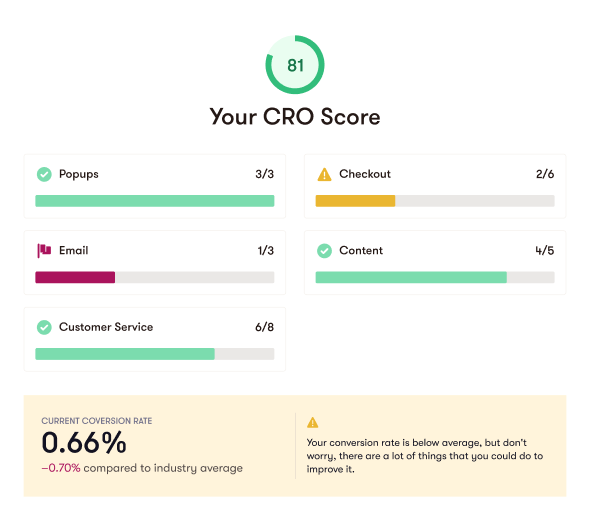
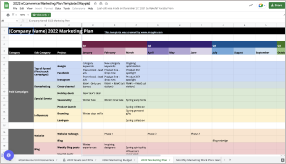


![The Ultimate Guide to eCommerce Marketing [2023]](https://assets-global.website-files.com/5a68f082ae5eb70001efdda4/6385de859c46e1ea40169136_sergio.webp)



![The Ultimate Guide to eCommerce Marketing [2023]](https://assets-global.website-files.com/5a68f082ae5eb70001efdda4/63639f6f98717c73ce6c9681_testimonial-img-nitzan.webp)


![The Ultimate Guide to eCommerce Marketing [2023]](png/63639f6f96a95b3feb1639b2_testimonial-img-melania.png)
![The Ultimate Guide to eCommerce Marketing [2023]](png/63639f704c65b0a7b6f14452_testimonial-img-stephanie.png)
![The Ultimate Guide to eCommerce Marketing [2023]](https://assets-global.website-files.com/5a68f082ae5eb70001efdda4/63639f6f4d2b6a531802d081_testimonial-img-joan.webp)
